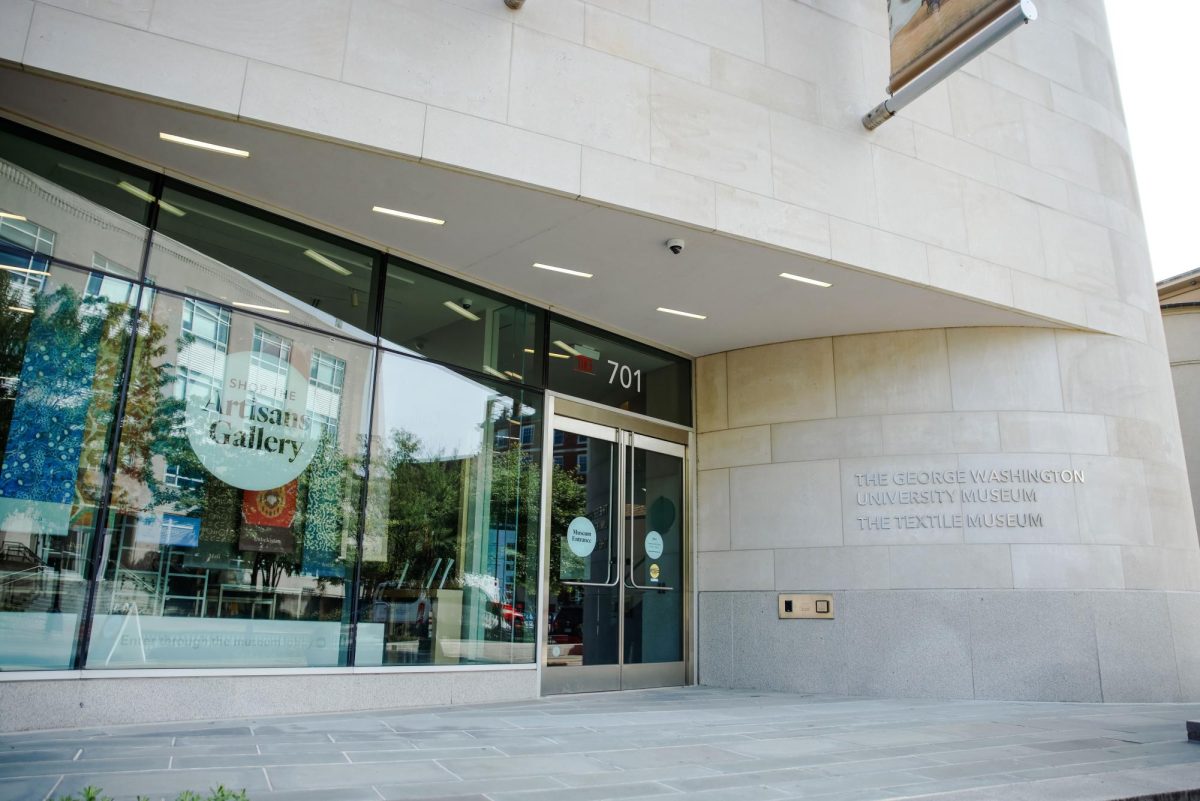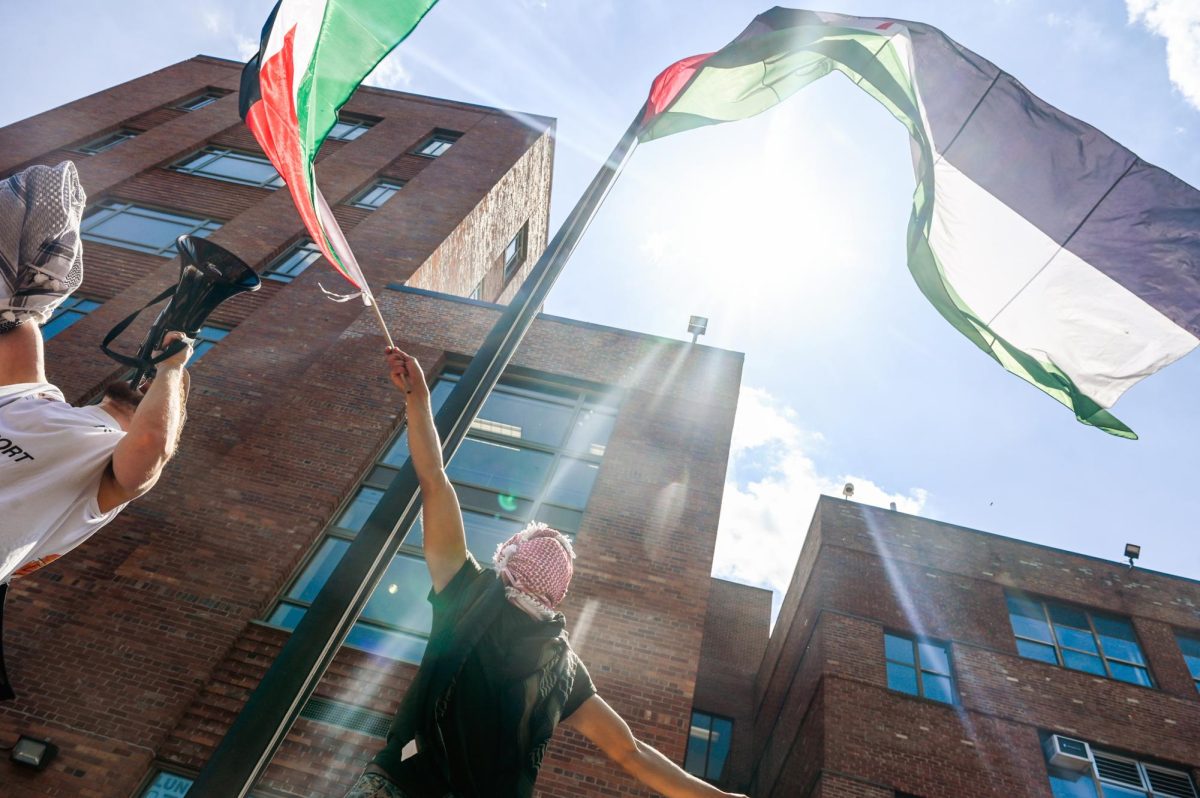More than a year after employees at the George Washington University Museum and The Textile Museum voted to unionize, workers are pushing in ongoing contract negotiations for pay that accounts for D.C.’s cost of living and their educational qualifications.
While GW officials and textile museum employees have agreed on “administrative” terms, like defining a work week and a full-time worker as a starting point, they have not reached a consensus on higher compensation and benefits, which are the bargaining unit’s main goals, textile museum Program Associate for Academic Engagement Katrina Orsini said. Textile museum staff said GW’s receptiveness to requests for wage increases has been slow, citing a constant back and forth about the human resources payment structure, which they say stunts progress on negotiations.
Orsini said the bargaining unit is also requesting benefits like mileage reimbursement and parking benefits. Staff often drive textile museum materials to and from the textile museum’s archive campus in Ashburn, Virginia, she said.
Textile museum workers said when the bargaining unit and officials begin to agree on small payment increases, officials come to subsequent meetings and change the structure of how employees are paid to only allow wage upticks for the lower-paid employees, meaning the union has to rewrite payment articles.
“Having to rethink about the structure again is delaying talking about the money another two weeks and another two weeks,” Orsini said. “I’m hoping that very soon that part can be done, we agree where everyone stands in the HR system and then really talk about the numbers.”
In September 2023, nine of 13 eligible museum employees unanimously voted to unionize and affiliate with Service Employees International Union Local 500. The textile museum employees’ vote to unionize came as the textile museum accepted a $25 million donation to fund an endowment, and employees felt the textile museum’s increased funding should have been used in part to increase their salaries, Orsini said.
She said they’re also asking for more transparency on how officials will use the money from the donation.
The union’s goal is to reach a salary that meets the D.C. living wage, which is the amount the Massachusetts Institute of Technology’s Living Wage Calculator determines is needed for people to fund their basic needs. The D.C. living wage, according to MIT, is about $49,700 per year for a single person without children. Employees said lower-paid textile museum employees make about $39,000 per year, despite all having received master’s degrees.
“We have full-time staff here who don’t make that, who have to work a second job to make a living, to be able to live in this expensive city,” Orsini said. “No one should have to work two, full-time jobs to live.”
Orsini said higher wages would help the museum boost its employee retention rate, which she said is often low because employees leave for higher-paying jobs at other city museums like the Smithsonian Institution. She said textile experts who have been at the textile museum for more than 20 years can’t “up and leave” because their field and knowledge base is more niche. Museum curators and archivists typically need master’s degrees, according to the Bureau of Labor Statistics.
Orsini said the bargaining unit meets with GW’s Associate General Counsel Charles Pollack, the textile museum’s Director John Wetenhall, Deputy Provost Terry Murphy, a human resources representative and two SEIU representatives, as well as an SEIU organizer. The bargaining unit writes their demands in articles, which are presented at the meetings, while the other party takes those articles and returns them with revisions at the following meeting. The parties also have not agreed on telework, union and management rights, which are relatively administrative — like giving managers hiring rights — Orsini said.
Orsini said she hopes the collective bargaining agreement with the textile museum is a “big step” for the University, especially as other groups like graduate students are unionizing on campus.
GW and SEIU agreed to meet on a biweekly basis beginning in January, University spokesperson Julia Metjian said. Metjian said the University is “optimistic” that contract terms will be finalized this semester.
“GW is committed to fostering a good working relationship with its unionized employees that is both responsive to their concerns and consistent with the University’s values,” Metjian said.
Several groups at GW have demanded collective bargaining agreements over the last few years with the hopes of improving salaries and benefits. Residents and fellows at the School of Medicine and Health Sciences voted to unionize last year, and union leaders at the GW Hospital have been battling with the hospital’s owner for years for union recognition and bargaining.
Nicoll Botero, the textile museum’s visitor experience specialist, said the bargaining unit’s biggest nonnegotiable demand is wage increases. A salary increase is necessary, so employees can live, not just survive, she said.
“We all want equity in terms of the labor force. We’re all highly qualified individuals, everyone has a master’s and years upon years of experience,” Botero said.
Botero said the timeline for finalizing contract negotiations is uncertain. She said GW doesn’t seem to be strongly considering the request for wage increases, despite the employees’ academic qualifications.
“We have finally started to make some movement, but it’s still not getting us to where we want to be,” Botero said.





